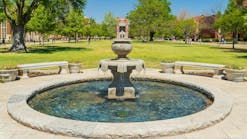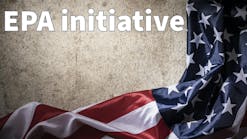MANAMA, Bahrain, Feb. 3, 2011 -- After much anticipation Bahrain's Ministry of Works and Ministry of Finance have awarded a consortium headed by South Korea's Samsung Engineering Company the Muharraq wastewater treatment facility contract.
The group, also including Abu Dhabi financial services firm Invest AD and the United Kingdom's United Utilities International, will build and operate the treatment plant as part of a BOT (build, operate and transfer) contract.
The plant will process 100,000 cubic metres per day of wastewater and is scheduled to achieve mechanical completion after 30 months. It is hoped facility will have the capacity to expand to 160,000 cubic metres per day in the future. It will serve a strategically important area of Manama, including the international airport, a new industrial park, and a popular residential zone.
The project includes taking over, upgrading and operating a portion of the city's wastewater network. Samsung Engineering and United Utilities will handle operations and maintenance for 24 years after completion.
Bahrain's Ministry of Works and Ministry of Finance awarded the concession following a financial and technical evaluation of six competitive bids submitted in February 2010. Before this stage, 16 companies made it to the pre-qualified list, including Suez Environment (Degremont), Sembcorp Industries and Veolia Water.
Park Ki-Seok, president and chief executive officer of Samsung Engineering, said that as the first BOO/BOT project in Bahrain, this project will serve as an integral part of Bahrain's sanitary infrastructure.
All three partners in the consortium are providing equity for the project, with Samsung committing 45%, Invest AD 35% and United Utilities 20%. Developed over three and a half years, the project is being debt financed by the Export-Import Bank of Korea (KEXIM), Japanese lender Sumitomo Mitsui (SMBC), and French banks Natixis and Crédit Agricole.
Nazem Fawwaz al Kudsi, chief executive officer of Abu Dhabi financial services company Invest AD, said: "I can only see these kinds of connections proliferating in coming years, as the fast growing economies of the Middle East and Africa region invest heavily in infrastructure as part of long-term development plans." .
###


